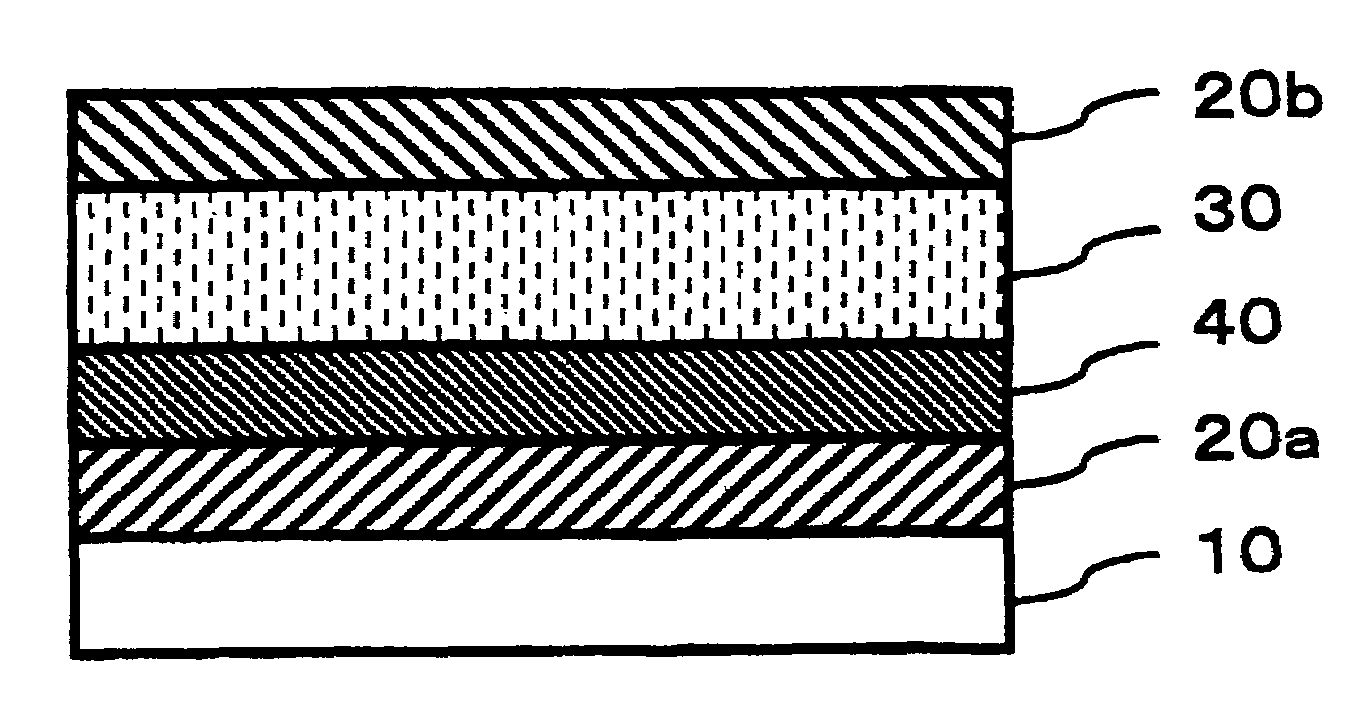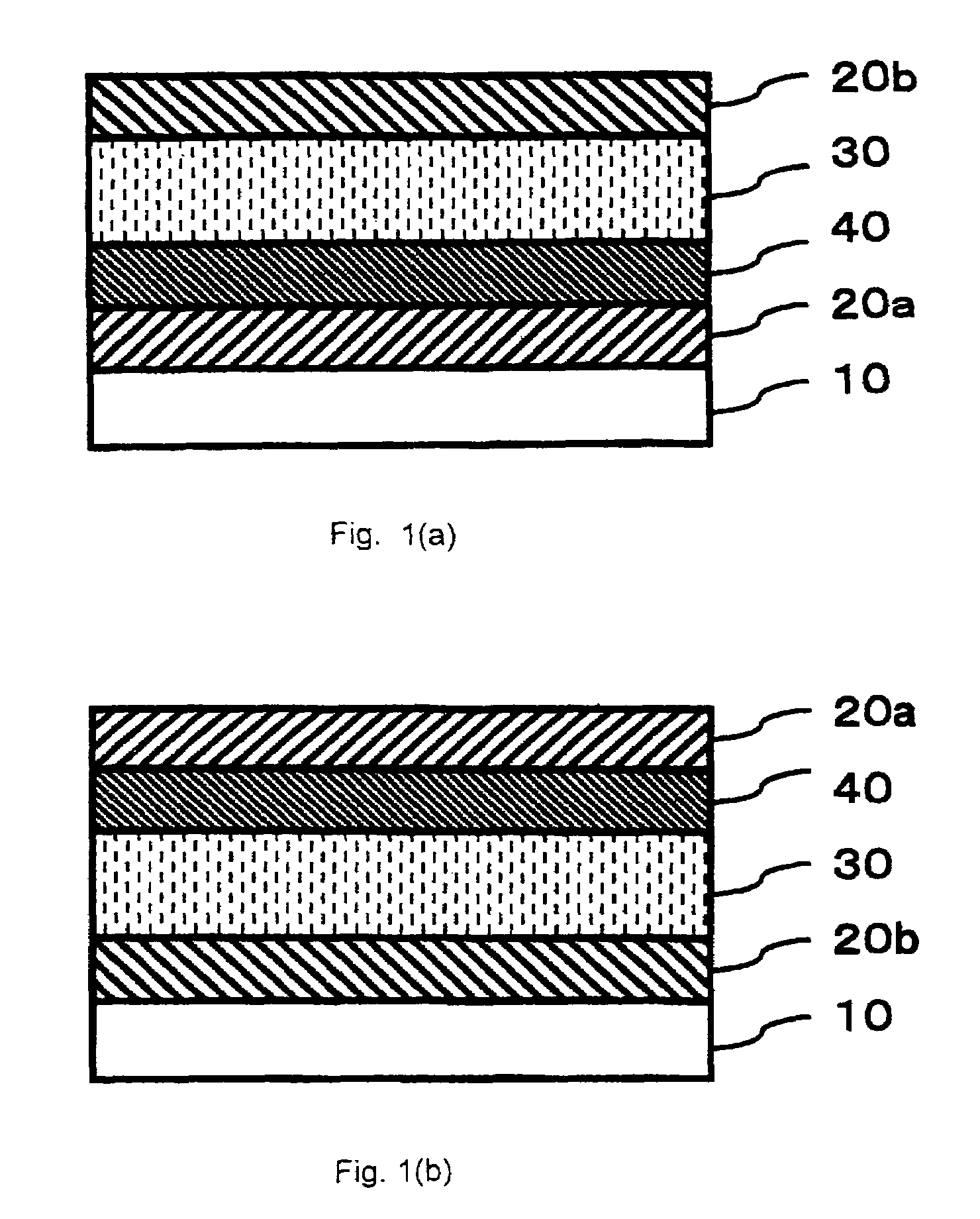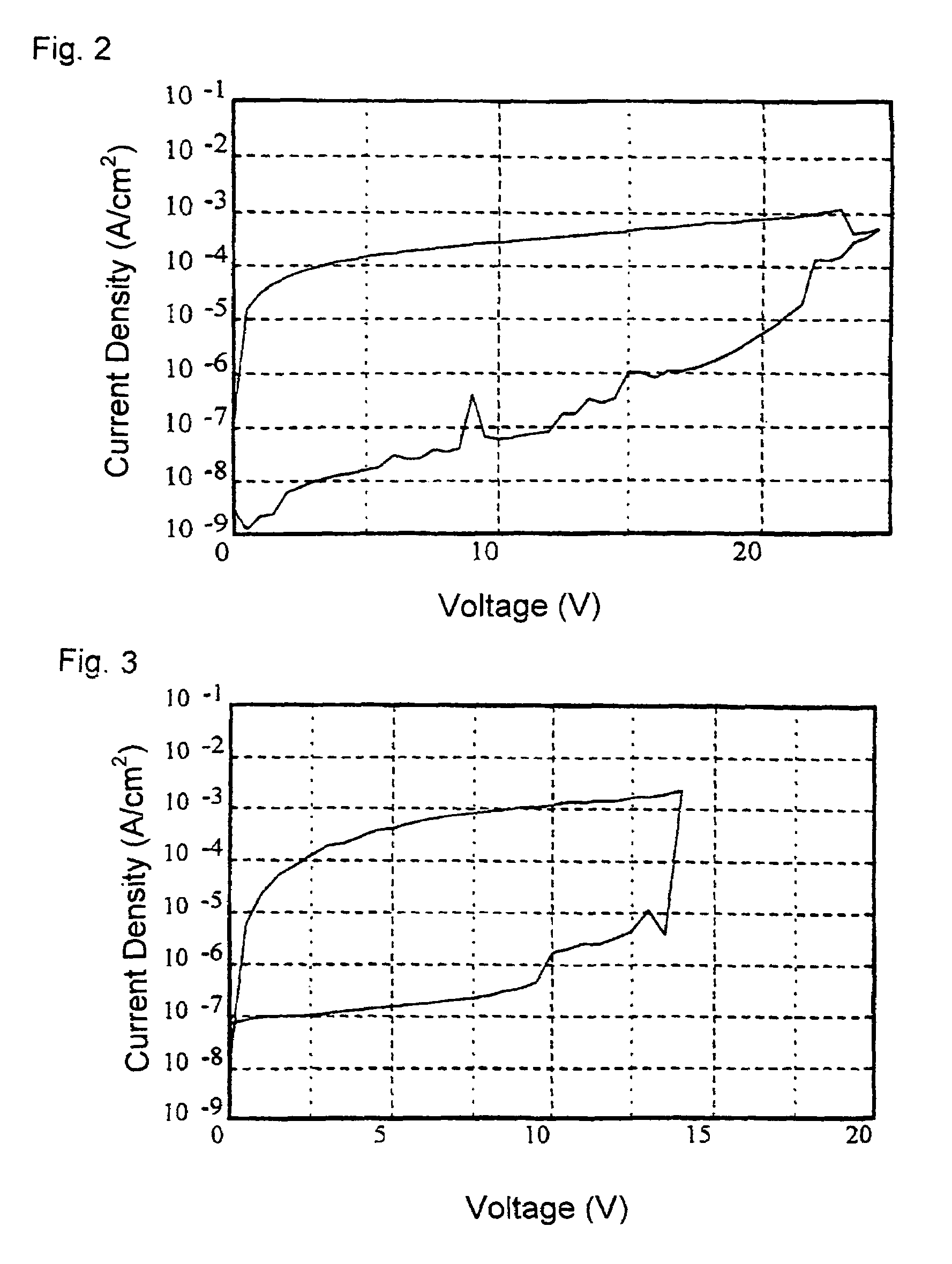Switching device
a switching device and electric charge technology, applied in non-linear optics, instruments, nanoinformatics, etc., can solve the problems of insufficient reproducibility of switching devices using electric charge transfer complexes, difficult control of compositions, and difficulty in controlling compositions, so as to facilitate the operation, enhance the transfer probability, and stabilize the switching characteristics
- Summary
- Abstract
- Description
- Claims
- Application Information
AI Technical Summary
Benefits of technology
Problems solved by technology
Method used
Image
Examples
example 1
[0088]In accordance with procedures to be described below, a switching device having a constitution as shown in FIG. 1a was prepared. Namely, while using a glass substrate as a substrate 10, a first electrode layer 20a, an electric charge injection suppressing layer 40, an organic bistable material layer 30, and a second electrode layer 20b are sequentially formed to be respective thin films by a vacuum deposition method in the stated order such that they came to be 100 nm, 10 nm, 60 nm and 100 nm, respectively, to thereby form the switching device according to Example 1.
[0089]As for a deposition source, namely, raw material, of each layer, aluminum is used as the first electrode layer 20a, gold is used as the second electrode layer 20b, and a quinomethane compound represented by the above-described formula (I-1) is used as the organic bistable material layer 30. Further, the electric charge injection suppressing layer 40 was formed by subjecting aluminum to reactive deposition in a...
example 2
[0090]A switching device according to Example 2 was obtained in a same condition as in Example 1, except that a thickness of the electric charge injection suppressing layer 40 was set to be 20 nm and a thickness of the organic bistable material layer 30 was set to be 80 nm.
example 3
[0091]A switching device according to Example 3 was obtained in a same condition as in Example 1, except that an oxygen partial pressure at the time of forming the electric charge injection suppressing layer 40 was set to be 1×10−5 torr.
PUM
| Property | Measurement | Unit |
|---|---|---|
| volume resistivity | aaaaa | aaaaa |
| thickness | aaaaa | aaaaa |
| temperature | aaaaa | aaaaa |
Abstract
Description
Claims
Application Information
 Login to View More
Login to View More - R&D
- Intellectual Property
- Life Sciences
- Materials
- Tech Scout
- Unparalleled Data Quality
- Higher Quality Content
- 60% Fewer Hallucinations
Browse by: Latest US Patents, China's latest patents, Technical Efficacy Thesaurus, Application Domain, Technology Topic, Popular Technical Reports.
© 2025 PatSnap. All rights reserved.Legal|Privacy policy|Modern Slavery Act Transparency Statement|Sitemap|About US| Contact US: help@patsnap.com



